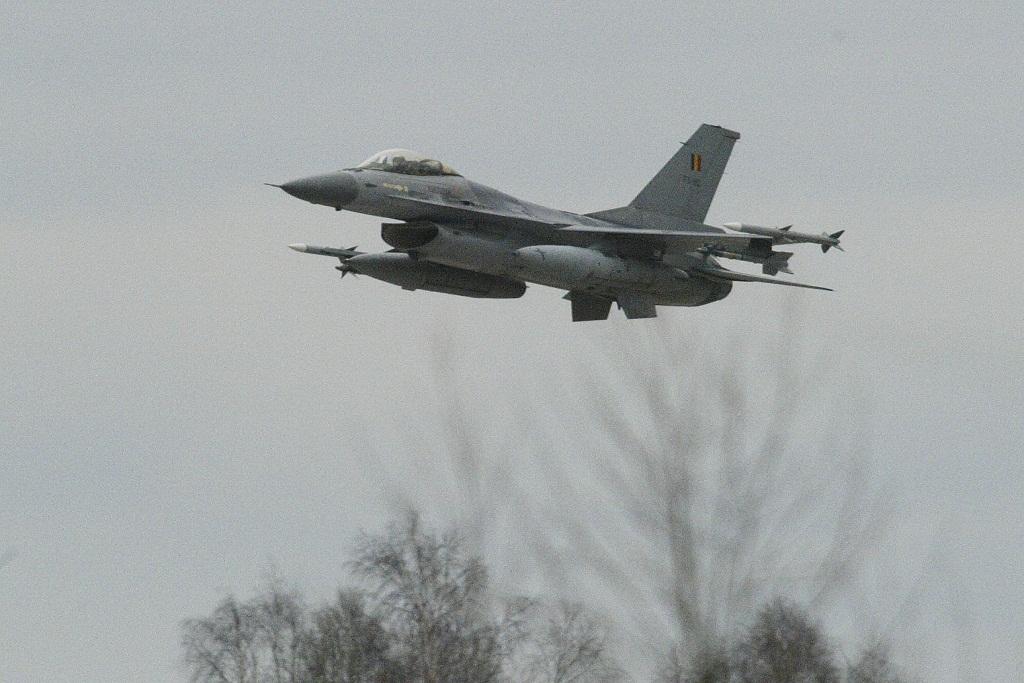NATO extends Baltic air patrols
SIAULIAI, LITHUANIA: A Belgian Air Force F-16 flies over the Zokiniai airfield near Siauliai 29 March 2004. Allied air forces will take turns patrolling the air space of Lithuania, Latvia, and Estonia following a decision made by NATO.
BRUSSELS, Belgium – NATO agreed Wednesday to extend a plan which sees the allied air forces taking turns to patrol skies over Latvia, Lithuania and Estonia, allowing the Baltic states to spend their scarce defense resources elsewhere.
The scheme is hailed by NATO leaders as an example of the “Smart Defense” concept that they want adopted more broadly by allies meeting at an alliance summit in Chicago on May 20-21.
The idea is that greater sharing of tasks and pooling of equipment among cash-strapped Europeans will enable them to do more to defend themselves without bursting already strained budgets, especially as the US turns its military focus to the Asia-Pacific region.
More on GlobalPost: NATO-Pakistan: Islamabad boycotts Afghanistan talks to protest deadly air strike
“Collaboration in air policing …exemplifies the kind of cooperation among allies that will become increasingly important in the future, as we reconcile our security requirements with budgetary realities,” said NATO Secretary General Anders Fogh Rasmussen. “This is the spirit of Smart Defense, which I expect to become a guiding principle for NATO.”
The Baltic states broke away from the Soviet Union in 1991 and joined NATO in 2004. They do not operate combat planes of their own, and rely on allies to provide fighters on rotation to police their air space.
In return, they are supposed to target defense spending on niche roles that can best help the alliance, such as Estonia’s cyber defense center, or the expeditionary units which all three nations have assigned to NATO’s force in Afghanistan.
NATO wants that concept applied on a large scale to ensure austerity does not further undermine Europe’s defensive punch.
More on GlobalPost: 1 in 3 US warplanes a drone, congress report says
The 2010 agreement between Britain and France to pool warships, build joint expeditionary forces, and coordinate nuclear deterrence was seen as a step in the right direction, but elsewhere progress has been slow as nations are wary of handing over military sovereignty.
The defense reforms announced by the Obama administration last month have been a wake up call for the Europeans, bringing $450 billion in military budget cuts, switching US focus to the Pacific, and announcing the withdrawal of two out of four army brigades from Europe by 2014.
Although the Baltic air policing is touted as a fine example of the new smart defense, the governments of the three countries have had to lobby hard to get their allies to agree to a long-term commitment to the plan – which typically involves just four planes, plus up to100 aircrew stationed at a base in Lithuania.
They are hoping Wednesday’s agreement will make the mission permanent and end what Estonian Foreign Minister Urmas Paet last month called a “pointless waste” of time and resources caused by the need to persuade allies to keep the mission going.
